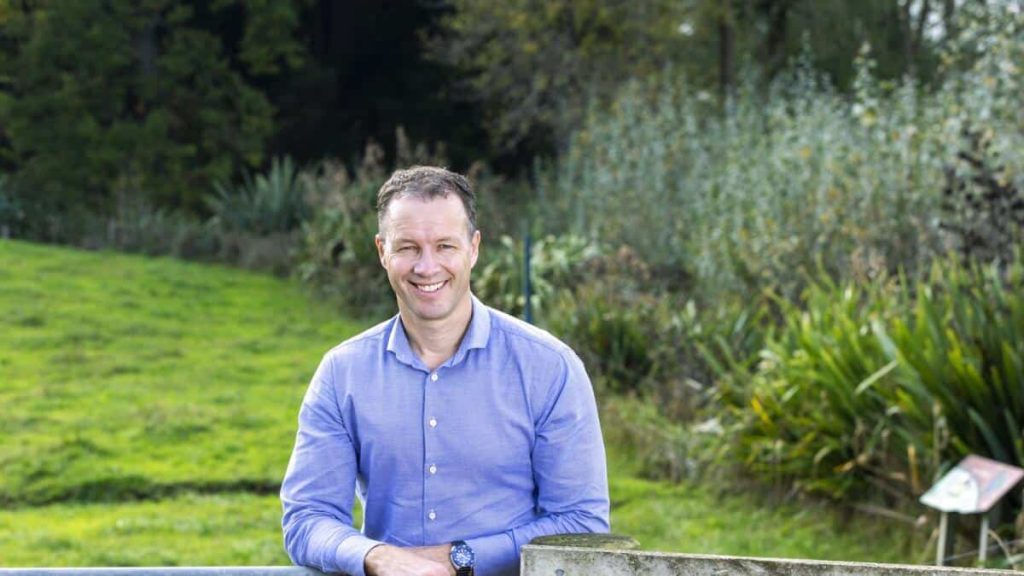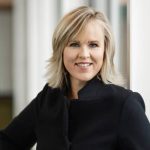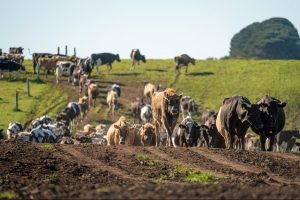
Former DairyNZ CEO Tim Mackle wants to help tell the story of dairy — as an industry, a nutritional food-source and as a livelihood for farming families across New Zealand and Australia.
“I’d like to share some insights and perspectives I’ve picked up and what this could mean for the Australian dairy sector,” he said.
Dr Mackle is a key speaker at the Dairy Research Foundation Symposium on November 7 and 8 in Camden, NSW.
“I will talk about the combination of pressures that our farmers have faced for many, many years now related to domestic challenges but also shifting customer expectations, domestically and internationally,” he said.
“Water quality issues have been around for quite some time now, emissions contributions, the global climate discussion, animal care, regulations, but also, how farmer’s feel about themselves and their place in the community, their sense of self-worth.
“I’ve talked to thousands of farmers over the years about how political and environmental criticisms have affected them emotionally. I have seen first-hand some farmers reluctant to admit to being a farmer because they don’t want the grief.
“There’s a level of pride for many there of course, but pride doesn’t always translate to confidence. It has really taken its toll on farmers.”
While the industry faces challenges, Dr Mackle wants to help farmers share their story but also stay focused, protecting a vital industry and also their own wellbeing.
Dr Mackle completed his PhD in animal science with minors in physiology, dairy chemistry and nutrition in humans and animals. He looks toward the future with awareness of how disruptive innovation can turn an industry on its head.
In relation to dairy, Dr Mackle says synthetically-made dairy ingredients are looming, particularly if they can provide lower-price products with lower environmental impact.
“Dairy and meat happen to be superior nutritionally; we do produce through dairy a wonderful wholesome, nutritious food that also has a great story behind it. The story is getting better all the time — in terms of how we are producing that food.
“We are going to have to be careful of how our story is told, the nutritional advantages need to be compared accurately against the environmental footprint. Not just kilo for kilo, but compare different foods on their nutritional benefits for humans against the environmental footprint.”
Dr Mackle highlights the economic effects dairy has on rural communities, as an industry that hires more staff than beef or sheep and is still primarily a family business with nine out of 10 farms being family-run.
“It’s vital to understand the multiplier effect dairy has in rural communities — in terms of the dollar going around,” he said.
“I’d like to motivate farmers to look forward with a vision of where they need to go to, despite politics and criticism from NGOs.
“There has been so much angst and finger pointing at farmers and it can get in the way of where they need to go as a sector and as farmers.
“The reality is, it does come back to the need to keep getting better. You cannot stand still. Farmers cannot afford to let politics distract them from their long-term goals.”
When asked what he was most looking forward to by speaking at the upcoming DRF Symposium, Dr Mackle said he was “looking forward to hearing the Australian perspective, the mood, the challenges”.
“Connecting with new people and having an opportunity to share some of the insights we’ve picked up over here and hopefully they are useful.”
For more information about the Dairy Research Foundation Symposium, go to: https://www.drfsymposium.com.au/tickets/
























